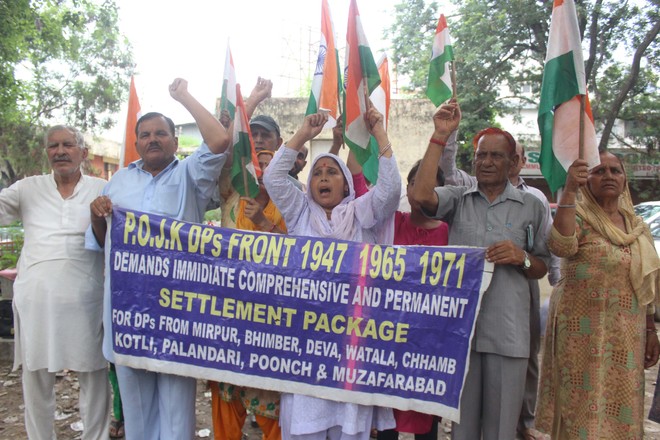Domicile policy a trigger for faultlines
Date:- 20 May 2020

Domicile fault-lines
Arun Joshi
Battle on cards - The parties from the perceived mainstream have termed new domicile policy unconstitutional and demanded its revocation, while Jammu-based parties have offered a diametrically opposite view, setting the stage for verbal and legal clashes
The notification of rules of the domicile policy announced on Monday that replaced all exclusive citizenship rights of the people of the erstwhile state of J&K could prove a potent trigger for faultlines in this sensitive region.
It is a study in compare and contrast with what J&K state and its native and permanent residents had , and how they are now obligated to reconcile to the new rules that come with “ one nation, one constitution” effected on August 5, 2019, with the scrapping of Article 370 and 35A .
Kashmir’s political class has reacted with anger over its timings and reiterated charges that Delhi was doing all this to effect “demographic change” in J&K, implying that its Muslim-majority character is threatened. The parties from the perceived mainstream have termed it unconstitutional and demanded its revocation, while Jammu-based parties have offered a diametrically opposite view, setting the stage for verbal and legal clashes.
The only concession available to these state subjects – the law enacted during the Hindu Dogra rule in 1927 – is that their Permanent Resident Certificate (PRC) document would get them domicile certificate without any further documentation, making them more equal among equals. But what happens to their new generations — whether the PRC document process will continue on the basis of their ancestry. Or, at some stage they, like others, will have to prove their stay of at least 15 years in J&K to qualify for domicile certificate (DC).
In a euphoria that it confers equality to one and all —15 years of stay for commoners from outside, 10 years for Central services personnel, seven years for students or class 10 and 12 exams – does not provide clear-cut answers as to what happens to Rohingiya refugees and others settled illegally in J&K.
“There always is a scope for abuse of rules,” an official explained, and substantiated by pointing out that it happens in some cases in procuring passports.
The rules, as amplified and specified by the J&K Government spokesperson Rohit Kansal, read simple and balanced — the permanent resident certificates will not be inconvenienced to produce more than one document.
This grants much-awaited citizenship rights to West Pakistan refugees and Valmikis who were living as second-class citizens before the constitutional change because the Kashmir-centric parties, National Conference and PDP, believed in the demographic change narrative if A few thousand souls living in J&K for decades were to be given rights due to them. The people will demand answers to this, and they will have none except rhetoric-filled statement.
And that is where the fault lines will emerge.
Courtesy: Daily Tribune: 20th May, 2020


